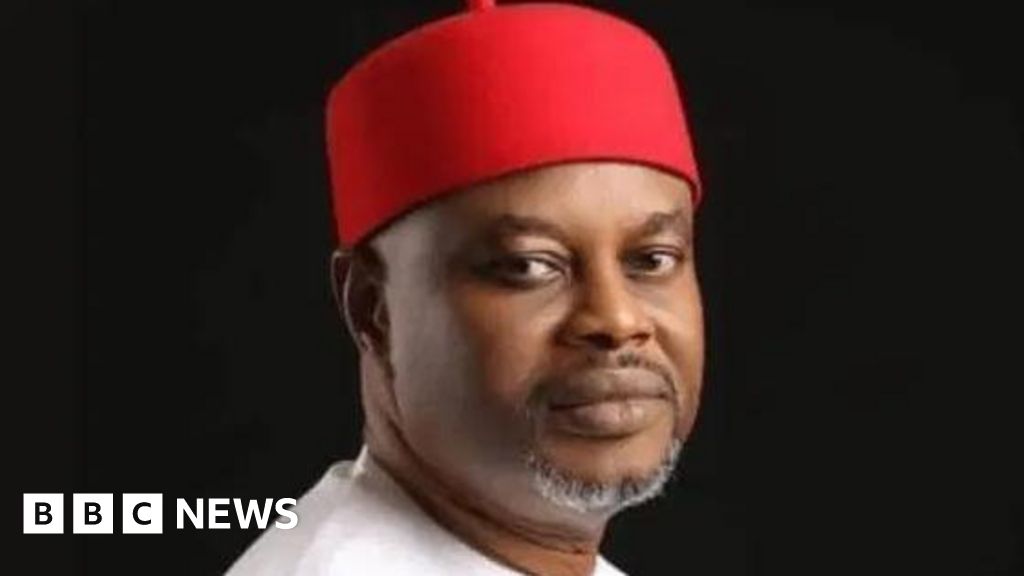Nigerian minister accused of forging qualifications resigns

```html Nigerian Minister Resigns Amid Qualification Forgery Allegations
Nigeria's Minister of Innovation, Science and Technology, Uche Nnaji, has resigned following allegations that he falsified his academic credentials. The resignation comes just days after a newspaper investigation brought the claims to light, sparking public outrage and prompting scrutiny of the appointment process for government officials.
The allegations, initially reported by the Premium Times newspaper, center on claims that Nnaji submitted falsified certificates to President Bola Tinubu during his ministerial appointment in 2023. Specifically, the investigation alleged discrepancies between Nnaji's claimed academic record and official university records.
Presidential Spokesperson Confirms Resignation
Presidential spokesperson Bayo Onanuga confirmed Nnaji's resignation via a post on X (formerly Twitter) on Tuesday. Onanuga quoted Nnaji as stating he had been "a target of blackmail by political opponents." While Nnaji denies the accusations of forgery, maintaining that he graduated from the University of Nigeria, Nsukka (UNN), with a degree in Microbiology/Biochemistry, the controversy has proven untenable for his position.
University and NYSC Certificates Under Scrutiny
The Premium Times investigation reported that UNN stated it had no records confirming Nnaji's graduation with a Bachelor of Science degree in 1985, as he had claimed. A senior university official reportedly told the publication that Nnaji was admitted in 1981 but did not complete his studies or receive a certificate. Further compounding the issue, the National Youth Service Corps (NYSC) reportedly stated that the mandatory certificate of national service Nnaji presented in April 2023 could not be verified.
Context: Scrutiny of Public Officials in Nigeria
This incident highlights the ongoing scrutiny of public officials in Nigeria and the increasing demand for transparency and accountability. Allegations of corruption and the falsification of credentials have plagued Nigerian politics for decades, eroding public trust and hindering development. President Tinubu, who assumed office in May 2023, has pledged to combat corruption and improve governance, making this resignation a significant test of his administration's commitment.
Expert Analysis: Implications for Governance
"This resignation, while unfortunate, underscores the importance of due diligence in the appointment of public officials," says Dr. Fatima Hassan, a political analyst at the Centre for Democracy and Development in Abuja. "It also sends a strong message that the public expects high standards of integrity from those in positions of power. The incident could potentially lead to a review of the vetting process for ministerial appointments, ensuring greater accuracy and transparency."
Rarity of Ministerial Dismissals
The suspension or removal of a minister is relatively rare in Nigeria. Nnaji is only the second minister to leave office since President Tinubu assumed power. In January, the then Humanitarian Affairs and Poverty Alleviation Minister Betta Edu was suspended following a corruption scandal. Former President Muhammadu Buhari sacked only two ministers during his eight-year tenure, highlighting the sensitivity surrounding such decisions.
Historical Parallels and the Fight Against Corruption The current situation echoes past instances of public officials facing scrutiny over their qualifications. This historical context underscores a persistent challenge in Nigeria’s efforts to establish robust governance structures and combat corruption at all levels. The frequency of such cases points to systemic weaknesses in the verification processes and a culture of impunity that needs to be addressed through comprehensive reforms.
The Way Forward
The resignation of Minister Nnaji presents an opportunity for President Tinubu's administration to reinforce its commitment to good governance and accountability. Moving forward, a thorough review of the appointment process and a renewed emphasis on transparency are crucial steps in restoring public trust and ensuring that those in positions of power are held to the highest ethical standards. The incident serves as a reminder of the importance of vigilance and the need for continuous efforts to strengthen Nigeria's democratic institutions. ```
Originally sourced from: BBC News Africa
